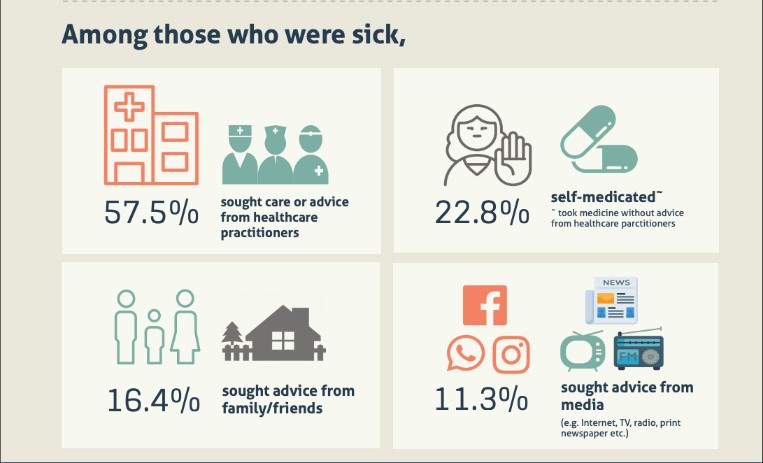KUALA LUMPUR, June 2 — Twenty per cent of the Malaysian population aged 13 and older rated their health as “not good”, according to the National Health and Morbidity Survey (NHMS) 2019.
One in five also recounted falling ill in the past two weeks prior to being interviewed in the national survey by the Institute for Public Health (IKU), a research institute under the National Institutes of Health by the Ministry of Health (MOH).
Among those who had fallen sick, only a mere 57.5 per cent of them requested advice or care from health care professionals, while the remainder either self-medicated without a health care provider’s supervision (22.8 per cent), took advice from family or friends (16.4 per cent), or sought advice from the media such as the internet and television (11.3 per cent).
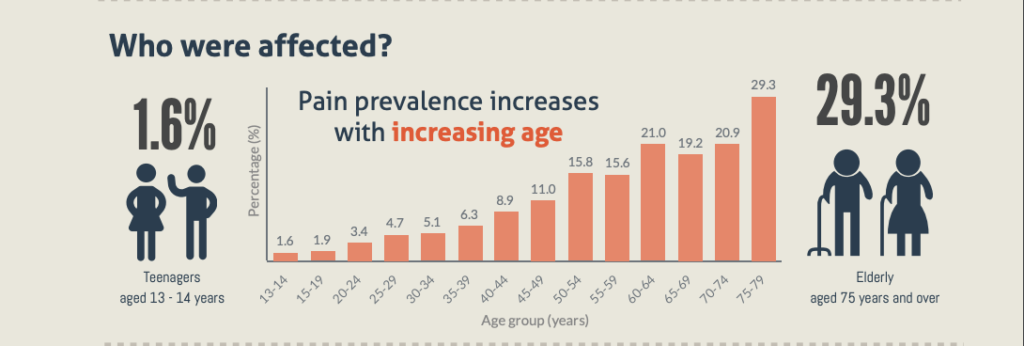
In addition to that, it was also reported that nine in 100 of the Malaysian population aged 13 and older suffer from chronic bodily pain (CBP), defined as pain in any part of the body that is felt every day or most days for three months or more.
The pain prevalence reportedly increases with age as 1.6 per cent of teenagers aged between 13 and 14 years old experience CBP, while a significant 29.3 per cent of elderly aged 75 and above suffer from CBP.
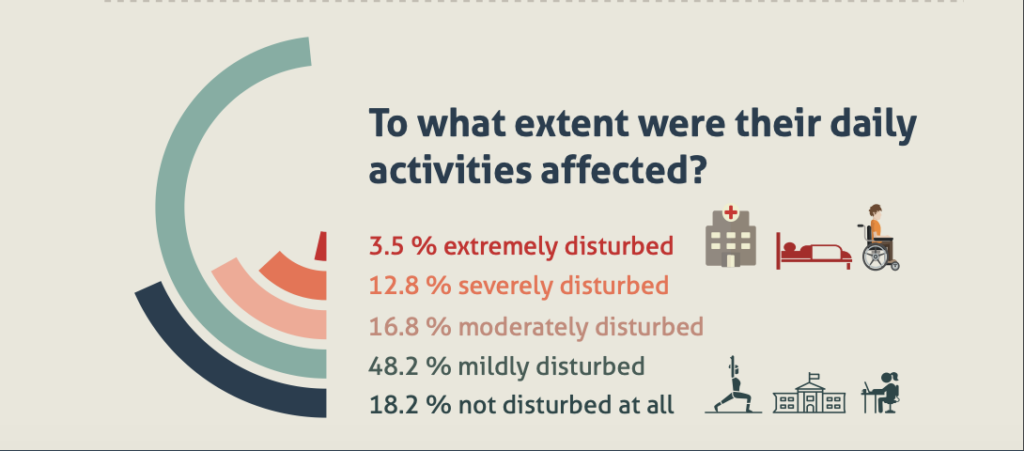
CBP affects daily activities of more than 80 per cent of its sufferers, with the majority of them feeling mildly disturbed (48.2 per cent) by their CBP. A total of 16.8 per cent of them felt moderately disturbed, 12.8 per cent felt severely disturbed, and 3.5 per cent of them were extremely disturbed by their condition, while only 18.2 per cent of them were not affected by their CBP.
Remarkably, more than 40 per cent of those who were sick chose to forgo medical advice or treatment, presenting an alarming statistic considering that one-third of Malaysian adults were found to have low levels of health literacy.
The NHMS 2019 defined health literacy as the “ability to find, to understand, and to use health information and services needed for everyday health decision making,” and stated that health literacy is important in terms of understanding health information, medical instructions, health risk factors, and practice of healthy lifestyle in order to be able to analyse risks and benefits of treatment and to arrange for health care appointments accordingly.
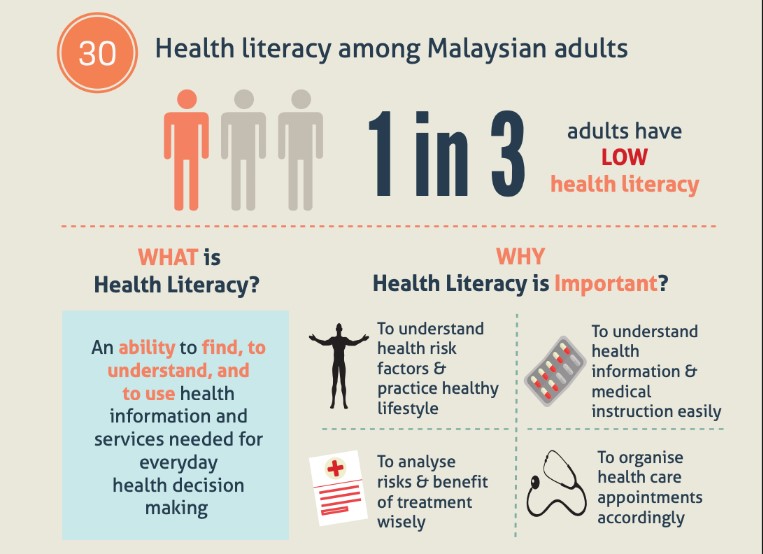
The public is advised to always ask health care providers questions related to one’s health condition and management, and over-the-counter medications or supplements; bring someone along to clinic or hospital to help with note taking on important information; and to be informed of one’s medical history such as current and prior health conditions, past surgeries, and medications as this is especially useful for when one visits a new clinic or hospital.
Half Of Malaysians Consume Added Sugar
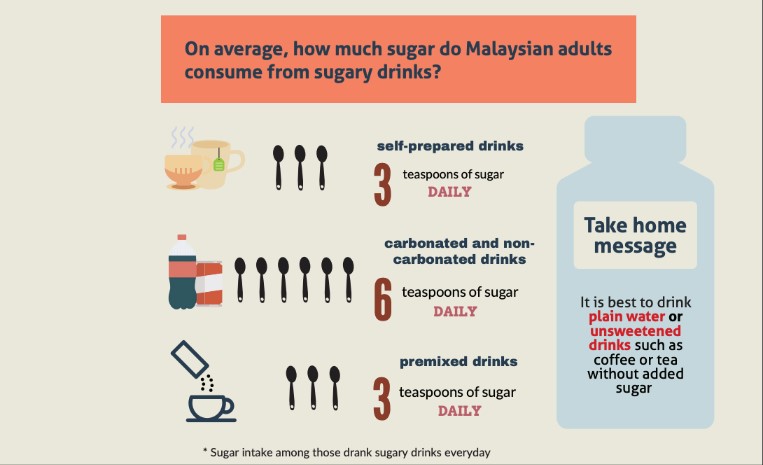
The NHMS 2019 further reported a “not-so-sweet picture” of Malaysians’ sugar consumption habits, where more than half of the population regularly consume added sugar in their beverages every day.
As many as 53.2 per cent of Malaysian adults reportedly added sugar and/or sweetened condensed milk or sweetened creamer into their self-prepared drinks daily, including coffee, tea, chocolate or malted beverages.
More than 4 per cent of the population consume carbonated and non-carbonated sweetened drinks daily and 6.7 per cent of the population consume premixed sweetened drinks every day.
On average, Malaysian adults consume three teaspoons of sugar with every self-prepared beverage, six teaspoons of sugar with carbonated and non-carbonated beverages, and three teaspoons of sugar with premixed drinks.
MOH cited the World Health Organization’s (WHO) recommendation that additional sugar should be limited to no more than 10 per cent of one’s daily energy consumption, which means that the average amount of additional sugar intake for adults inclusive of hidden sugar should not exceed 10 teaspoons or fifty grams per day.
Over-consumption of sugar leads to health complications such as obesity and non-communicable diseases such as diabetes. The NHMS 2019 also reported that the prevalence of diabetes in Malaysian adults has increased from 13.4 per cent in 2015 to 18.3 per cent in 2019.


